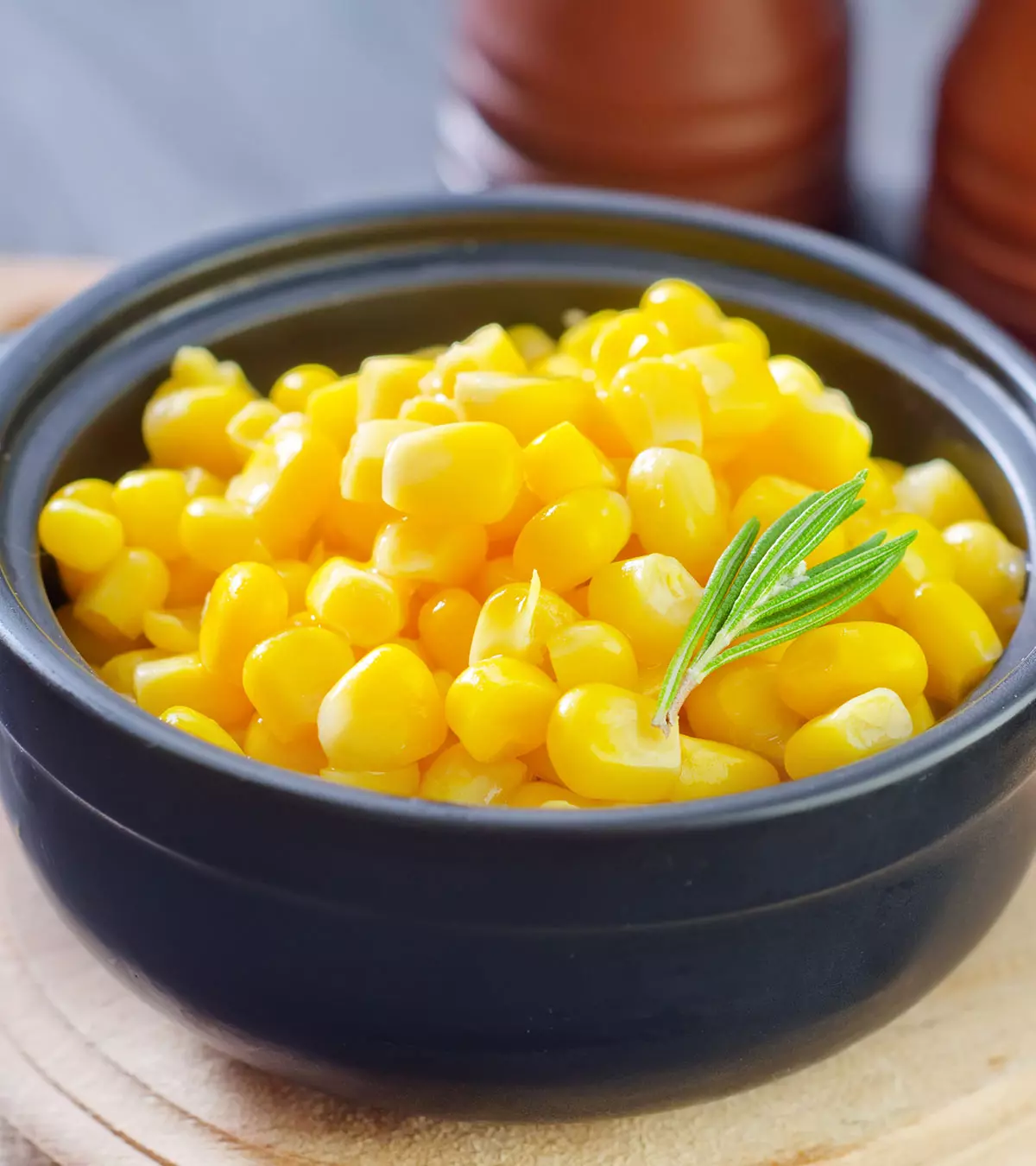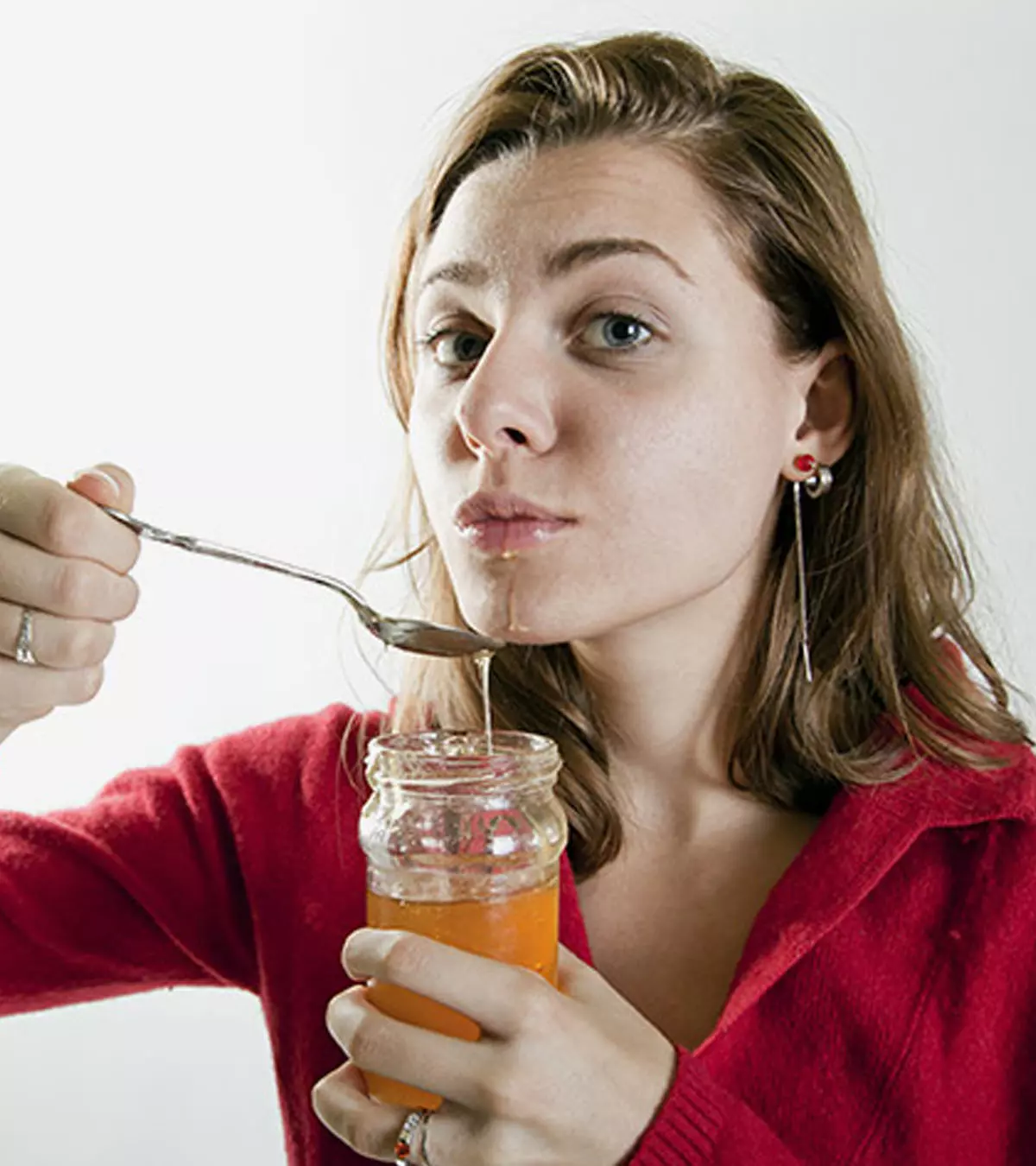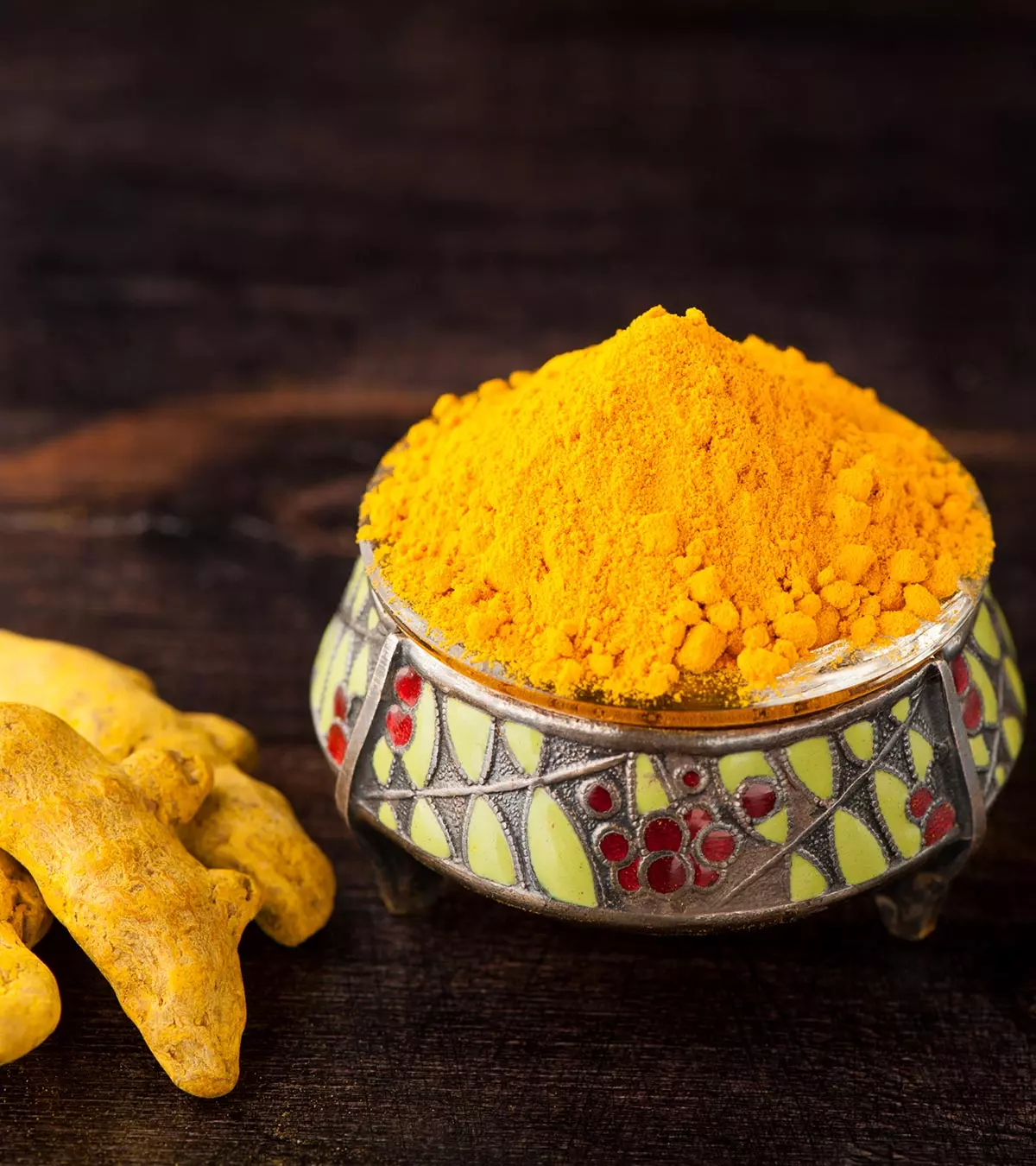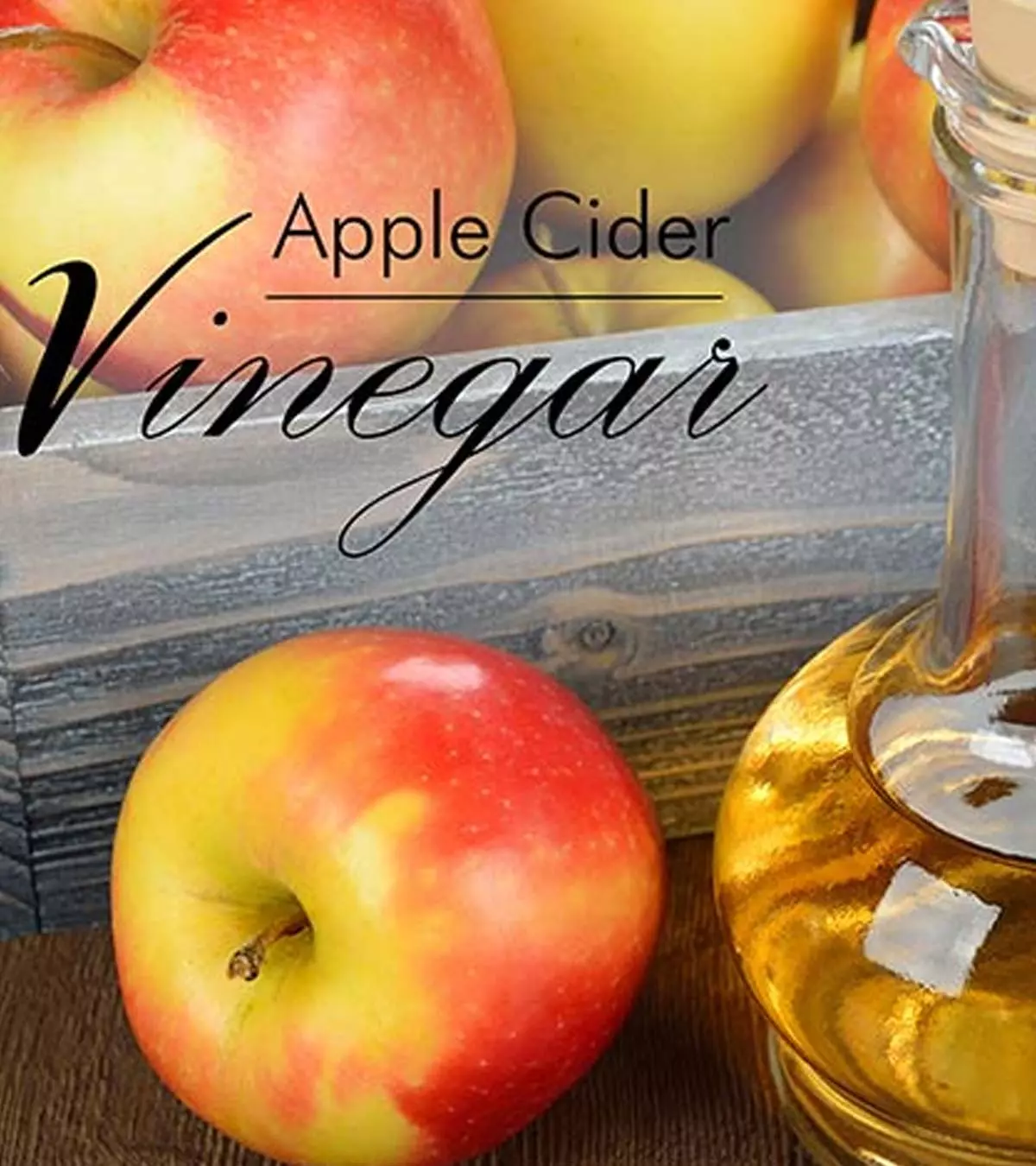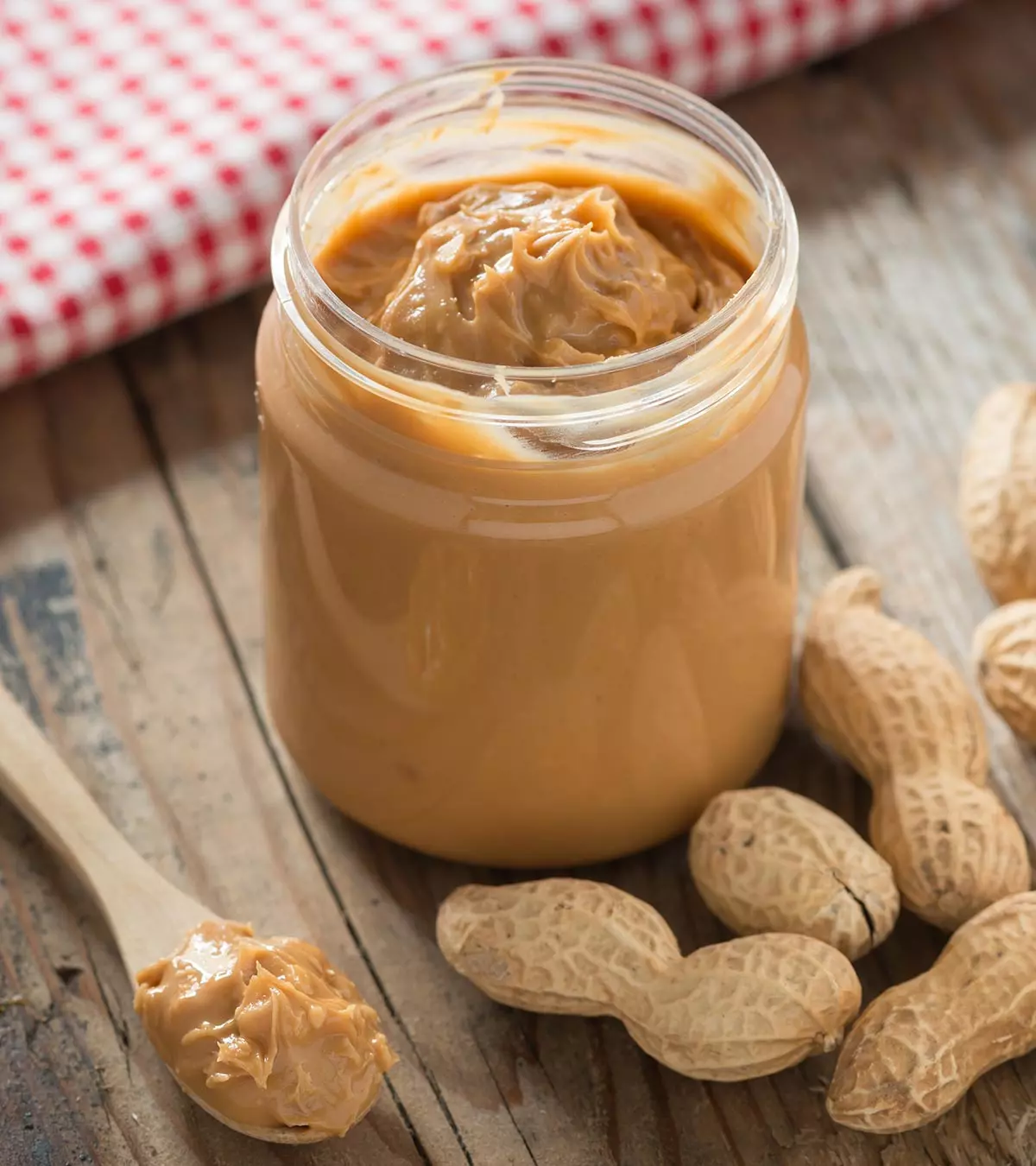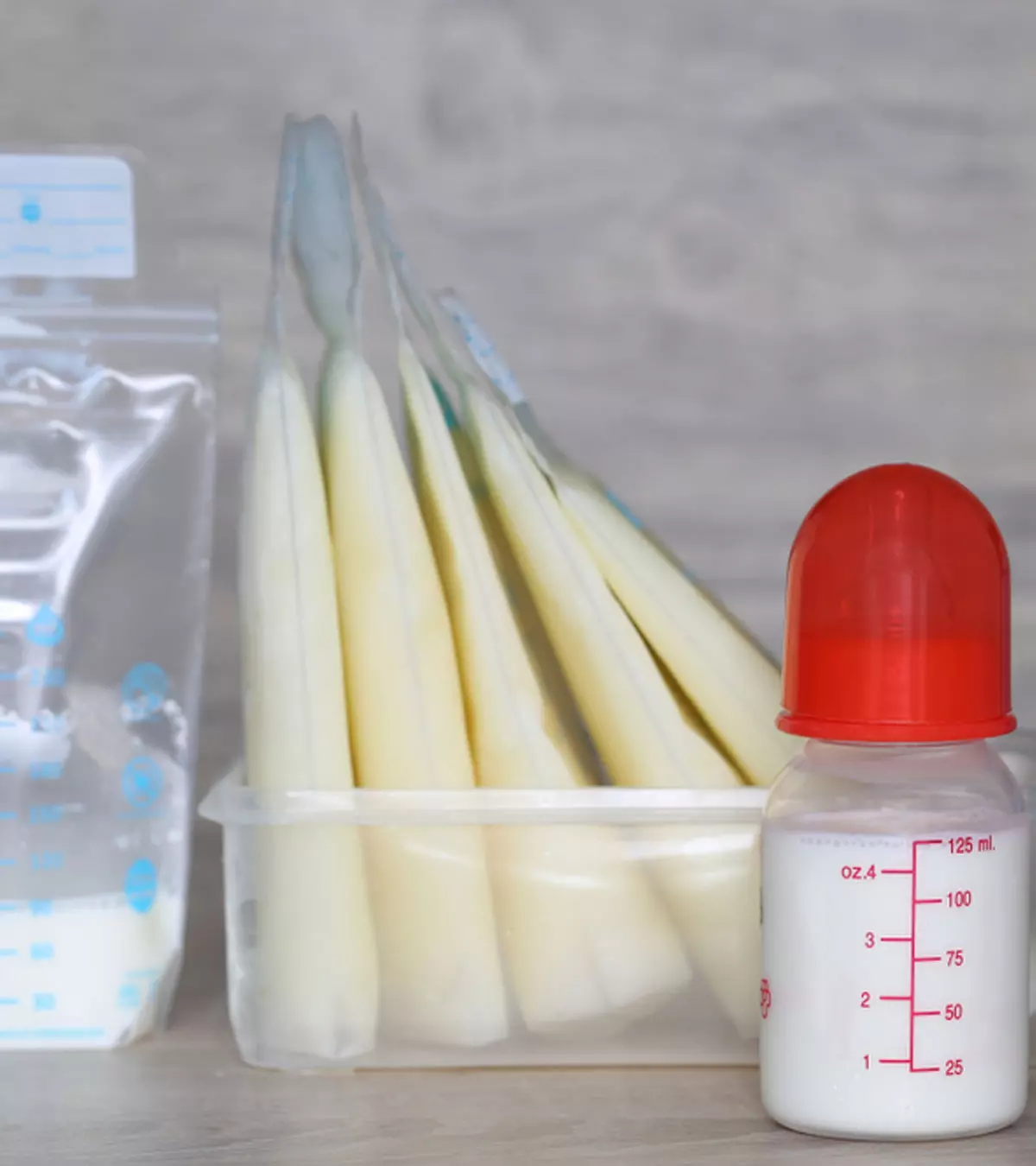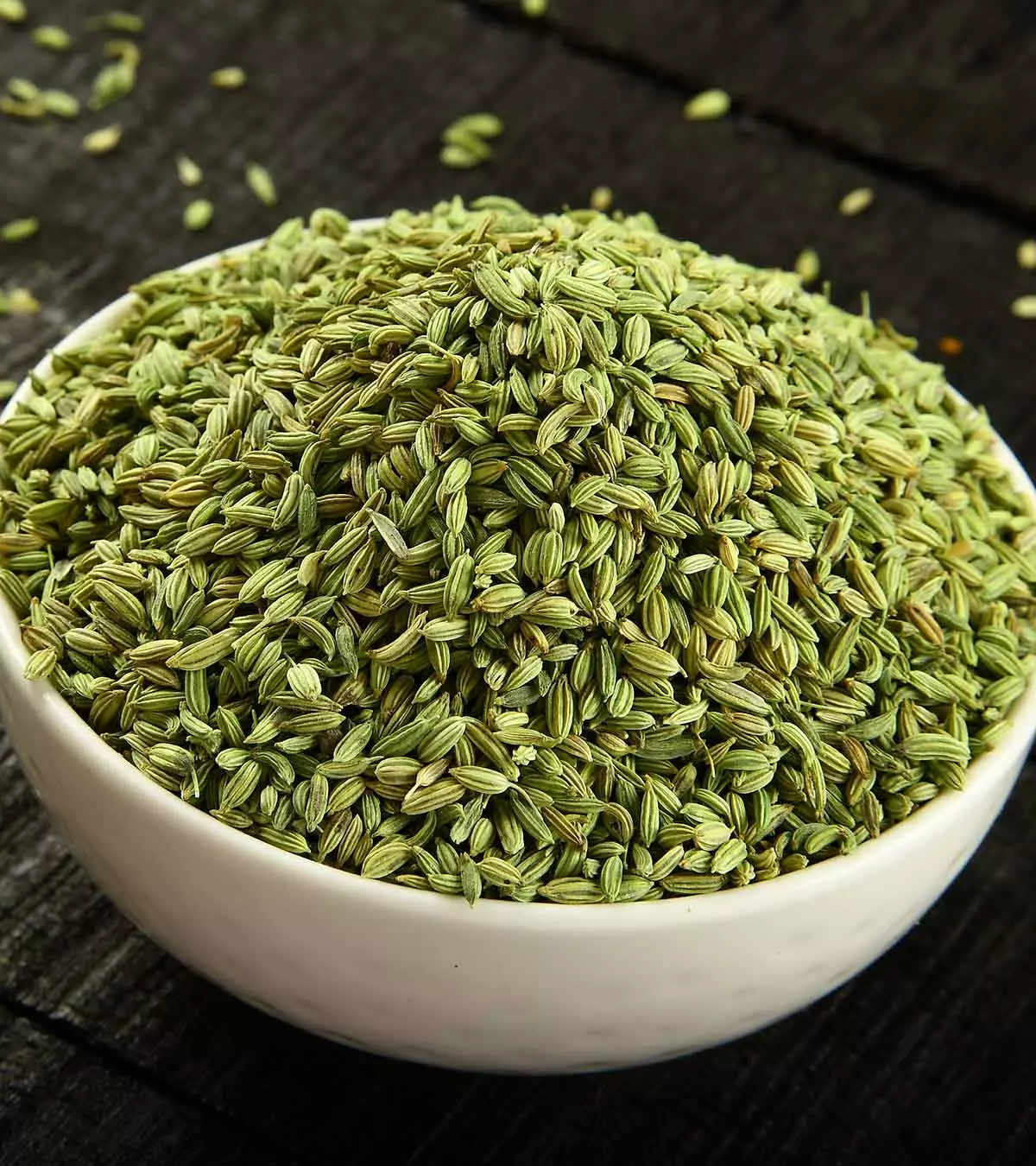
Image: iStock
The famous Mediterranean herb parsley can enhance the flavor of any dish it gets added to. Although the seasoning is beneficial to health, consuming food with parsley during your pregnancy may have certain side effects.
Certain oils contained in parsley are believed to induce early contractions or even kidney damage. However, if you are used to seasoning most of your dishes with the herb, you do not have to let go of it completely. Instead, you may consult your doctor about the right amount to use in your diet.
Scroll through to know more about parsley for pregnant women, including its side effects and some easy delicious recipes.
Key Pointers
- Consuming too much parsley while pregnant can have adverse effects.
- Parsley contains specific chemicals that can result in uterine contractions, dizziness, and loss of balance.
- Breastfeeding mothers can use parsley to reduce milk production.
- It is recommended to consult a doctor before using parsley as a garnish in soups while pregnant.
Is Parsley Safe During Pregnancy?

Image: Shutterstock
Cooking enthusiasts worldwide use parsley, to enhance the taste of their dishes. Besides adding flavor to meals, it contains numerous nutrients such as vitamins, minerals such as calcium and phosphorus, folate, and antioxidants (1) (2). Additionally, parsley is also used as a natural remedy to aid digestion (3). Despite its many benefits, it can pose certain risks, such as inducing uterine contractions, and should be consumed in moderation. Pregnant women, in particular, should avoid taking excessive amounts of parsley as it can do more harm than good (4).
Side Effects Of Eating Parsley During Pregnancy
, a nutritionist from Alpharetta, Georgia, says, “Parsley does not usually lead to miscarriage, but it can cause a woman to experience preterm labor if consumed in large amounts. Therefore, it is important to discuss any herbal supplement use with your doctor or midwife before taking it during pregnancy.”
Research is still going on to find out the exact dosage of parsley that you can safely consume while you are pregnant, and there are no conclusive results yet. To be sure that you do not experience any side effects or health risks by consuming parsley during your pregnancy months, check with your medical practitioner first. Parsley can be used in various ways – as the natural form in leaf, as oil, as a juice and as seeds.
Here are some effects of parsley that can affect you and your unborn baby’s health during pregnancy:
- Parsley leaves contain parsley oil, which is a volatile form of oil. Even though it does not have any side effects when not pregnant, it can cause potential health risks if taken while you are pregnant (4).
- Parsley oil contains apioliConcentrated extracts of parsley oil that may cause damage to the kidneys if consumed in large quantities. and myristiciniAn organic compound, named after the nutmeg tree Myristica fragrans, with nerve function suppressing activity. , which were once stimulants to facilitate miscarriage and abortions. The oils promote menstruation that can also lead to uterine contractions (4). The components can also result in premature labor and can pose a potential health risk to both the mother and the baby.

Image: IStock
 Did you know?
Did you know?- In severe cases, parsley oil can also damage the kidneys and cause seizures.
- Myristicin can directly reach your unborn baby as it can travel through your placenta and reach your unborn baby’s body. Once it reaches your baby, it can affect the rate at which the heart beats, often leading to an increase in heart rate.
- Myristicin can also cause other side effects like dizziness and loss of balance (4).
- If you are in the habit of having green teas that contain parsley extract and parsley seeds, it could potentially increase the amount of apiol and myristicin you consume on a regular basis. As stated earlier, a high amount of these parsley oils can have a disturbing effect on both the mother and the fetus.
- Parsley oil, in large amounts, can also cause hemoglobin issues in your unborn baby’s blood.
- In some cases, eating parsley when pregnant can also lead to some allergies or reactions, especially if you are sensitive to other plants like fennel, coriander, carrots, celery or dill. Those who regularly come in contact with parsley experience allergic reactions where the skin turns more sensitive towards sunlight (5).

Image: Shutterstock
 Point to consider
Point to considerWhile it is not safe to consume parsley during pregnancy, you can use it to garnish food.
Parsley Recipes As A Garnish
Once your doctor gives you the go-ahead to have parsley as a garnish during your pregnancy, try out some recipes we list here. If your doctor asks you to avoid any ingredient listed, please use a substitute instead:
1. Potato Leek Soup:

Image: Shutterstock
You Will Need:
- 3 chopped leeks – only the white parts
- 4 quartered potatoes
- ¼thcup butter
- ½ cup milk
- ½ cup light cream
- 1 q chicken broth or water
- ¼thtsp fresh chopped chervil
- 2 tbsp. chopped shallots
- 2 tbsp. chopped celery
- 1/8thtsp celery seeds
- Parsley for garnish
- Croutons
- Salt and pepper as per taste
How To:
- In a pan, sauté the leeks and the shallots in butter till they turn soft.
- Add one quart of water or chicken broth, whatever you are using. Add ½ tsp salt, potatoes and celery and cook it on simmer for about 25 minutes.
- Remove the potatoes and the leek and place them in a separate bowl. Use a potato masher to mash the potatoes and the leek till they turn into a soft puree consistency. Place this back in the pan with the liquid.
- Add the milk, cream, and the remaining butter. Keep heating for about two minutes and remove from heat.
- Add salt and pepper as required. Garnish with the croutons and the parsley.
2. Cream Of Celery Soup:
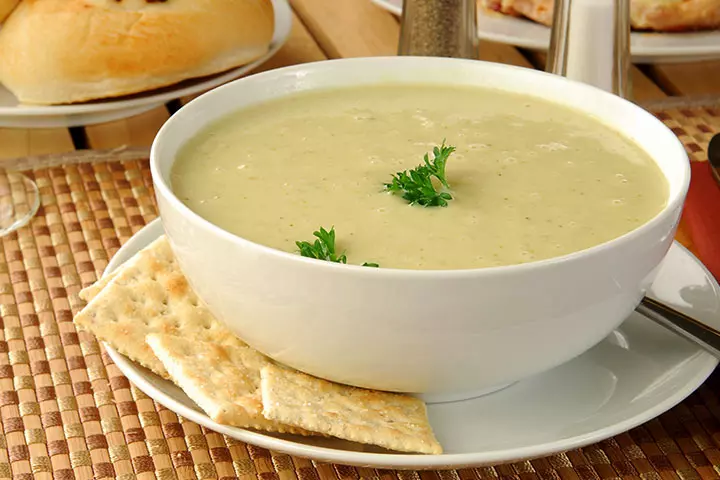
Image: Shutterstock
You Will Need:
- 1 minced onion
- ½ cup celery leaves and stalk
- 1 bay leaf
- 4 parsley sprigs
- 1 thyme sprig
- 1 whole clove
- 1 cup cold water
- 1 tsp salt
- 1 tbsp. flour
- 1 tbsp. butter
- 1 pint warm milk
- Salt and pepper to taste
- 1 well-beaten egg yolk
- 2 cups light cream
- Fresh parsley for garnish
How To:
- Mix the onion and celery in a pan with water and salt. Add the thyme, bay leaf, parsley and clove in a clean cloth and place in the pan. Simmer for about 30 minutes.
- Cream the flour and butter till it blends and add to the hot milk.
- Add it to the pan and simmer for 15 minutes. Remove the cloth and put the thyme and parsley back in the soup.
- Blend it in a food processor and place back in the pan. Add cream and a beaten egg yolk and add to the soup. Season with salt and pepper and garnish with parsley.
Frequently Asked Questions
1. How much parsley can I eat when pregnant?
You may consume parsley in the foods that are used to enhance flavor and fragrance. Avoid consuming large amounts of parsley oil or extract for medicinal purposes. You may also avoid parsley tea or juice (4).
2. Is it safe to eat raw parsley when pregnant?
Herbs such as parsley, cilantro, and basil are grown low to the ground and can be contaminated by irrigation water. You may eat raw parsley after thoroughly washing in running tap water since it can be contaminated with microbes during cultivation and packing. It is also often consumed without cooking, leading to foodborne infections such as salmonellaiBacteria that when ingested through contaminated food and drink cause diarrhea, cramps, fever, chills and headaches. and E.coliiA common intestinal bacteria certain strains of which may cause illnesses such as diarrhea and fever. (6). Harmful germs on leafy greens and other raw vegetables can cause foodborne illnesses, such as listeriosis, E.coli infection, and salmonellosis (7).
3. Can parsley interact with any medications during pregnancy?
Parsley may interact with certain medications, including diuretics and lithium (4). It is important to consult a healthcare provider before consuming parsley during pregnancy, especially if taking any medications.
4. Can parsley help with water retention during pregnancy?
Parsley may be beneficial in managing water retention or edema during pregnancy due to its diuretic effect (6). However, it may not have desired effects on all women.
5. Can parsley help with digestion during pregnancy?
Parsley may help with digestion but consuming it in large amounts can be harmful. As such, it is often considered one of the herbs to avoid during pregnancy. However, you can use it in moderation as part of a balanced diet after consulting your doctor.
6. Can parsley help with high blood pressure during pregnancy?
A study demonstrated that parsley extract could reduce blood pressure in hypertensive rats, indicating its antihypertensive potential (8). Consulting a healthcare provider for appropriate treatment options during pregnancy is important.
7. Can parsley help with anemia during pregnancy?
Parsley’s high iron concentration may aid in treating anemia during pregnancy caused by iron deficiency. Additionally, the presence of vitamin C in the herb facilitates iron absorption in the body (5).
8. Can parsley help with urinary tract infections during pregnancy?
Parsley contains compounds that may have antibacterial and diuretic properties and may help eliminate the causative pathogens from the body during pregnancy (4). However, UTIs will need appropriate treatment medications, so consult your doctor first.
While this flavorful herb has various health advantages, consuming parsley during pregnancy might have adverse effects. It can induce abortions and miscarriages by stimulating uterine contractions. Myristicin, a compound present in parsley oil, can also be harmful to fetal development. However, after consulting with a doctor, pregnant women can safely use parsley as a garnish for some healthy recipes.
Infographic: Side Effects Of Eating Parsley During Pregnancy
Although you can include small amounts of parsley in your pregnancy diet, it is best to avoid its consumption to reduce the risks of unknown complications. In the following infographic, we present a list of potential side effects that can be observed due to overconsumption. Illustration: Momjunction Design Team
Illustration: Parsley During Pregnancy - Is It Safe To Eat?

Image: Stable Diffusion/MomJunction Design Team
Get answers to your questions and concerns about the safety of eating parsley during pregnancy with the help of this informative video
References
- Parsley and Cilantro
https://aggie-horticulture.tamu.edu/food-technology/nutrition/parsley-and-cilantro/ - Antioxidant Properties of a Parsley (Petroselinum crispum) Juice Rich in Polyphenols and Nitrites
https://www.foodandnutritionjournal.org/vol04nospl-issue-conf-october-2016/antioxidant-properties-of-a-parsley-petroselinum-crispum-juice-rich-in-polyphenols-and-nitrites/ - Parsley: a review of ethnopharmacology, phytochemistry and biological activities
https://pubmed.ncbi.nlm.nih.gov/24660617/ - Emmanuel Olorunju Awe and S Olatunbosun Banjoko; (2013); Biochemical and haematological assessment of toxic effects of the leaf ethanol extract of Petroselinum crispum (Mill) Nyman ex A.W. Hill (Parsley) in rats.
https://www.ncbi.nlm.nih.gov/pmc/articles/PMC3637085/ - Parsley.
http://www.hhma.org/healthadvisor/ma-parsley-ma/ - Microbiological Surveillance Sampling: FY18-21 Fresh Herbs (Cilantro, Basil & Parsley) Assignment.
http://www.fda.gov/food/sampling-protect-food-supply/microbiological-surveillance-sampling-fy17-21-fresh-herbs-cilantro-basil-parsley - Fruit and Vegetable Safety.
https://www.foodsafety.gov/blog/fruit-and-vegetable-safety - Mohammed Ajebli and Mohamed Eddouks; (2019); Antihypertensive activity of Petroselinum crispum through inhibition of vascular calcium channels in rats.
https://pubmed.ncbi.nlm.nih.gov/31252093/
Community Experiences
Join the conversation and become a part of our nurturing community! Share your stories, experiences, and insights to connect with fellow parents.
Read full bio of Dr. Elizabeth Roberts
- Mary Sabat is certified in personal training by the American Council of Exercise (ACE) and has 30 years experience as a fitness trainer, diet planner, and holistic health coach. She did her BS in Dietetics and Nutrition at University of Delaware and MS in Human Nutrition with an emphasis on Exercise Science, at Rutger’s University.
 Mary Sabat is certified in personal training by the American Council of Exercise (ACE) and has 30 years experience as a fitness trainer, diet planner, and holistic health coach. She did her BS in Dietetics and Nutrition at University of Delaware and MS in Human Nutrition with an emphasis on Exercise Science, at Rutger’s University.
Mary Sabat is certified in personal training by the American Council of Exercise (ACE) and has 30 years experience as a fitness trainer, diet planner, and holistic health coach. She did her BS in Dietetics and Nutrition at University of Delaware and MS in Human Nutrition with an emphasis on Exercise Science, at Rutger’s University.
Read full bio of Ria Saha
Read full bio of Swati Patwal
Read full bio of Lorraine Teron














